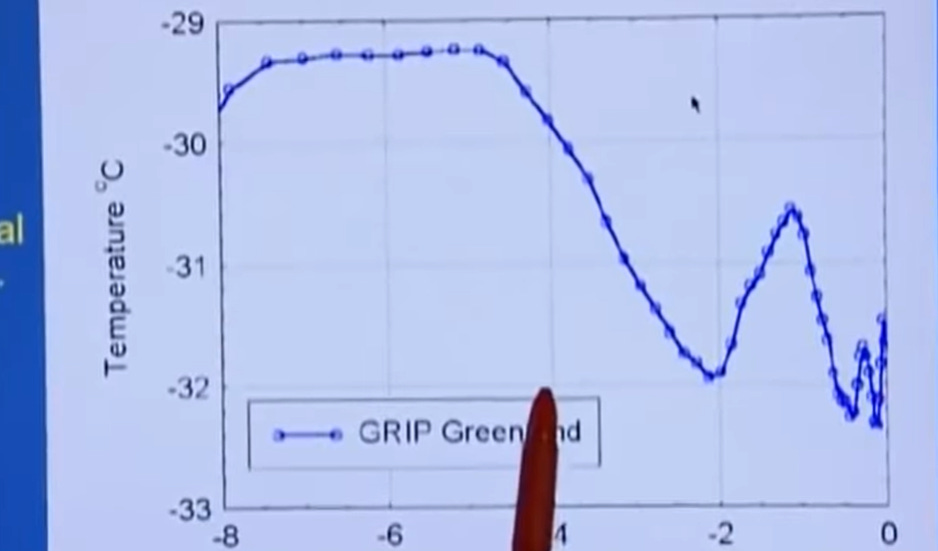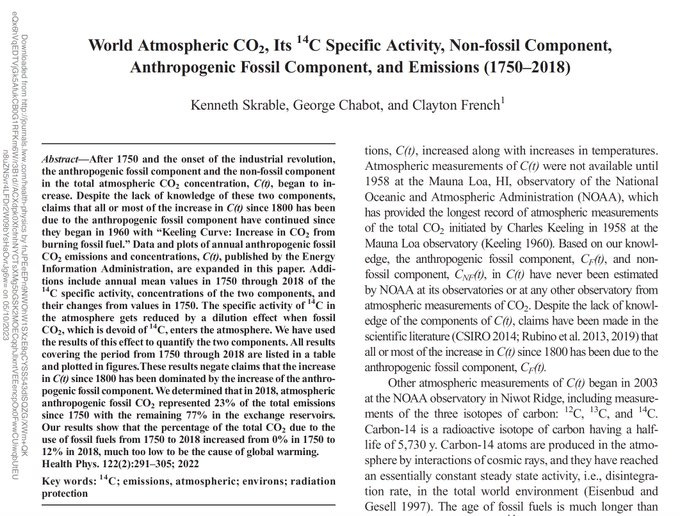Did Jesus Cause Climate Change?
Did Jesus Cause Climate Change?
Arguments against claims that climate change is caused by human activities
Look at the graph above. It shows the temperature in Greenland over the last 8,000 years. Between 8,000 and 5,000 years ago the temperature was around 2 degrees warmer than it is today. After that it drops around 2.5 degrees over the next 3,000 years. But look what happens around 2,000 years ago, temperatures spike up 1.5 degrees.
What happened around 2,000 years ago? Jesus was born. Did Jesus cause climate change and the spike in global temperatures? No, of course not. I was being facetious. But it is the type of argument you would encounter from the cult of Net Zero. They see a spike in temperature and try to blame it on the latest zeitgeist without exploring all hypotheses.
The graph comes from an old video in which Professor Jorgen Peder Steffensen from the Niels Bohr Institute at the University of Copenhagen discusses ice core data. He and his team drilled the ice cores in Greenland and reconstructed the last 10,000 years of climate history.
Professor Steffensen also explains that around 1,000 years ago, temperatures were around 1.5 degrees warmer than they are today - the Medieval Warm Period.
Since the Medieval Warm Period, temperatures declined until around 1650 A.D. before rising a little in the 18th century. Around 1875 we have the lowest temperatures in the last 8,000 years. Coincidentally, this matches the time when meteorological observations started.
Other core samples in Greenland confirm that the little ice age ended about 140 years ago. This has also been confirmed elsewhere in the northern hemisphere. Carbon 14 dating of organic matter from peat bogs and tree rings confirms the pattern. Data from stalactite caves in China and measurements from North Africa also confirm the data.
The Professor says that of course we have had global temperature increases in the 20th century but an increase from what? Probably an increase from the lowest point we’ve had for the last 10,000 years. He says this means that it is very hard to prove whether the increase is man-made or natural.
A more recent paper, from last year, backs up Professor Steffenson’s point. The authors from the University of Massachusetts say that after 1750 and the onset of the industrial revolution, man-made and natural atmospheric CO2 concentration has increased. They say that despite the lack of knowledge on what is causing the increase, blame for all or most of the increase since 1800 has been on humans burning fossil fuels.
Fossil fuels are devoid of Carbon-14 when they enter the atmosphere because they are very old and carbon is radioactive and decays over time. However, natural sources do have some Carbon-14 so by analysing the Carbon-14 activity in historic CO2 samples, the authors were able to determine what proportion of CO2 was man-made and what was natural.
They conclude that their results negate claims that the increase in CO2 concentration since 1800 has been dominated by the increase in burning fossil fuels. They determined that in 2018, man-made C02 represents 23% of total emissions since 1750. Their results show that the percentage of the total CO2 due to the use of fossil fuels from 1750 to 2018 increased from 0% in 1750 to 12% in 2018, much too low to be the cause of global warming.
And remember CO2 only makes up about 0.04% of the atmosphere so man-made CO2 in 2018 represents 0.0048%.
Of course the video and the latest study have been refuted but they should all be added to the evidence box for a sensible discussion on climate change.
For the last hour I’ve been asking ChatGPT what it thinks about the latest study. It just responds with:
It’s not impressed.
And just in case I wasn’t clear enough above - no, Jesus didn’t cause climate change!
Source: The Naked Emperor's Newsletter



Comments
Post a Comment